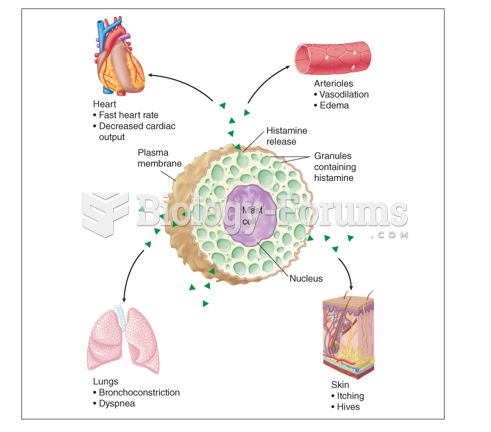|
|
|
Acetaminophen (Tylenol) in overdose can seriously damage the liver. It should never be taken by people who use alcohol heavily; it can result in severe liver damage and even a condition requiring a liver transplant.
Asthma cases in Americans are about 75% higher today than they were in 1980.
The shortest mature adult human of whom there is independent evidence was Gul Mohammed in India. In 1990, he was measured in New Delhi and stood 22.5 inches tall.
In the United States, there is a birth every 8 seconds, according to the U.S. Census Bureau's Population Clock.
Symptoms of kidney problems include a loss of appetite, back pain (which may be sudden and intense), chills, abdominal pain, fluid retention, nausea, the urge to urinate, vomiting, and fever.
 Cushing syndrome. This syndrome includes the symptoms of obesity, moon face, hyperglycemia, and musc
Cushing syndrome. This syndrome includes the symptoms of obesity, moon face, hyperglycemia, and musc
 The locations of human primary somatosensory cortex (SI) and one area of secondary somatosensory ...
The locations of human primary somatosensory cortex (SI) and one area of secondary somatosensory ...





